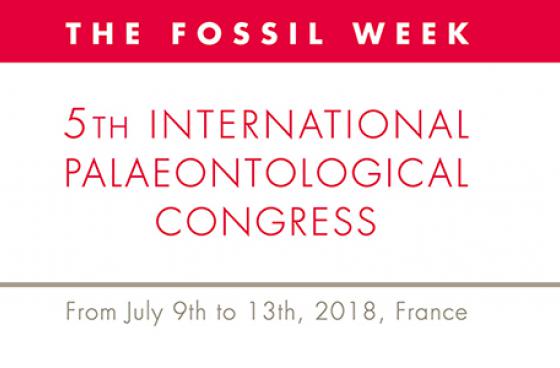After the Paris Fashion Week, the Paris FOSSIL week, the 5th International Congress of Paleontology, will take place at the MNHN, Paris from July 9th to 13rd, 2018. In the frame of this congress, Gilles Berillon (HNHP-The Musée de l’Homme, France), Thomas Tütken (Universität Mainz, Germany) and I propose the symposium S15 entitled “Experimental Approaches in Palaeontology: New Data from Old Fossils”. Below is the purpose of this symposium. I encourage you to register to this special symposium S15 here (https://ipc5.sciencesconf.org/) and hopefully we will meet at the Paris Fossil Week!
Actualism is the fundamental approach palaeontologists use to explore the biology of the past. Based on morphology-derived functional interpretations palaeontologists identify plausible gross feeding habits, metabolism, locomotion, and environmental preferences for extinct species. Elongated appendicular skeleton would rather support cursorial adaptations for an extinct ungulates, hypsodont cheek teeth represent an adaptation to grazing for extinct rodents or horses, or thick enamel as an adaptation to forage on hard seeds or tubers for early human ancestors. (Mis-) interpretations of such anatomical features have important consequences not only for the reconstruction of the palaeoecology but also for the identification of the plausible underlying mechanisms driving evolution. To surpass these limitations, palaeontologists develop(ed) taxon-free tools to test hypotheses regarding ecology, physiology, function or behavior of extinct species. Among them, dental microwear, stable isotope and trace element analysis, bone microstructure and motion simulation have shown great potential to extract biological and ecological information from fossil teeth and bones. However, these proxies need to be validated on extant vertebrates with known ecological habits. Experimentation provides an appropriate methodological approach to test functional and ecological hypotheses in a controlled framework before any exploration on fossils. This symposium is primarily dedicated to researchers who developed their working hypotheses based on fossil material, tested them using experimental approaches and put the results back into the palaeontological context. We invite contributions from colleagues working on any vertebrate taxa such as fishes and tetrapods, including hominins but also topics from invertebrate palaeontology are welcome.

